Why Dogs Eat Dirt: 5 Causes And Prevention Tips
Addressing diet, enrichment, and medical care can keep your dog from nibbling on soil.
Why Do Dogs Eat Dirt?
Dog owners often encounter their canine companions engaging in odd behaviors, but eating dirt can be especially puzzling and concerning. This article explores the most common reasons dogs eat dirt, the risks involved, and what pet owners can do about it.
Understanding Geophagia and Pica
When dogs consume non-food items such as dirt, rocks, or even fabric, it is termed pica. Specifically, the consumption of soil, mud, or dirt is known as geophagia.* Both are relatively common in dogs and can result from various behavioral, nutritional, or medical factors.
Common Reasons Dogs Eat Dirt
- Nutritional Deficiencies: If a dog’s diet lacks essential minerals or nutrients, such as iron, calcium, or sodium, they may instinctively turn to dirt to supplement their needs.
- Behavioral Triggers: Boredom, stress, and anxiety can lead to compulsive behaviors, including the consumption of non-food substances. Lack of mental stimulation and infrequent exercise are common culprits.
- Medical Concerns: Certain illnesses, such as anemia, gastrointestinal distress, or other metabolic issues, could drive a dog to eat dirt in an attempt to alleviate discomfort or fulfill a physical need.
- Curiosity and Sensory Exploration: Dogs use their mouths to explore the world. Dirt may contain interesting smells or flavors, possibly from animal droppings, spilled food, or organic material.
- Seeking Relief from Stomach Upset: Some dogs eat dirt to soothe gastrointestinal discomfort or encourage vomiting to relieve an upset stomach.
Table: Primary Triggers for Dirt Eating in Dogs
| Category | Examples | Potential Solutions |
|---|---|---|
| Nutritional Deficiencies | Lack of minerals or vitamins in diet, underfeeding | Switch to high-quality, balanced dog food; consult veterinarian |
| Behavioral Issues | Boredom, separation anxiety, stress | Increase exercise and enrichment; positive reinforcement |
| Medical Problems | Anemia, GI upset, metabolic disorders | Veterinary diagnosis and management |
| Environmental Factors | Food smells, animal remains, chemical residues in soil | Supervise outdoor activity; remove temptations |
Behavioral Causes of Dirt Eating
Boredom is one of the leading behavioral reasons dogs develop strange eating habits. When a dog lacks adequate mental and physical stimulation, they may turn to the ground, scavenging for anything interesting. Stress or anxiety—whether from environmental changes, lack of companionship, or separation from their humans—can also drive a dog to seek comfort or distraction in the garden soil.
Dogs are also naturally curious and have evolved to investigate their environment with their mouths. Soil may contain remnants of food, scents from other animals, or even insects that attract a dog’s attention.
Nutritional Deficiencies and Diet
Despite commercial foods advertising complete nutrition, not every kibble meets every dog’s unique needs.Iron, calcium, and sodium are some minerals that dogs may instinctively seek by consuming soil if absent from their regular diet. Prolonged underfeeding or an imbalanced homemade diet can also motivate dogs to look for nutrients elsewhere.
Ensuring your dog receives a veterinarian-approved, balanced diet is a crucial preventive measure. If your dog is drawn repeatedly to eating dirt—especially if accompanied by weight loss or chronic digestive issues—a thorough dietary review and possible bloodwork may reveal deficiencies.
Medical Reasons Dogs Eat Dirt
Sometimes, geophagia is not just a quirky behavior but a red flag signaling underlying health problems. Several medical conditions have been associated with dirt eating, including:
- Anemia (due to blood loss, parasites, or dietary insufficiency)
- Gastrointestinal distress (vomiting, diarrhea, changes in appetite)
- Liver or kidney disease (impacting metabolic balance)
- Endocrine disorders (such as thyroid or adrenal issues)
If your dog’s dirt eating is sudden, compulsive, or comes with other symptoms—like lethargy, loss of appetite, or changes in stool—a prompt visit to your veterinarian is essential. Early intervention can often prevent more serious complications.
Dangers and Risks of Dirt Eating
Though dogs’ digestive systems are resilient, eating dirt is not risk-free and can lead to serious health issues:
- Intestinal Blockages: Dirt may contain rocks, sticks, or debris, which can cause dangerous obstructions.
- Exposure to Toxins: Lawns, parks, or gardens may harbor pesticides, fertilizers, and chemical waste hazardous to pets.
- Internal Parasites: Soil is a common source for parasites like roundworms or hookworms, which can lead to significant health problems.
- Bacterial Infections: Certain bacteria and pathogens thrive in soil and can cause gastrointestinal illnesses when ingested.
- Poisonous Substances: Besides chemicals, dirt may also contain shards of glass, plastic, or harmful fungi.
How To Respond: What Dog Owners Should Do
If you notice that your dog has started eating dirt, consider these steps:
- Supervise Outdoor Time: Observe your dog during walks or playtime in the yard. Redirect their attention with toys or commands if they gravitate toward soil.
- Rule Out Medical Issues: Chronic or compulsive dirt eating warrants a veterinary checkup to exclude anemia, parasitic infections, or other illnesses.
- Review Diet Quality: Ensure your dog’s meal plan is balanced and meets all nutritional requirements for their breed, age, and activity level.
- Enrich Their Environment: Boredom can be reduced by introducing puzzle toys, interactive play, increased walks, and social interaction.
- Eliminate Outdoor Hazards: Check your garden or yard for spills, decaying food, or animal droppings that might tempt your dog.
When to See a Veterinarian
Although occasional dirt eating may not be immediately alarming, watch for these warning signs:
- Frequent or obsessive soil consumption
- Digestive symptoms (vomiting, diarrhea, constipation)
- Sudden behavior changes
- Signs of malnutrition (weight loss, poor coat quality, lethargy)
- Blood in stool or vomit
If any of these occur, consult your vet immediately. Diagnostic tests, including blood panels or fecal exams, may uncover treatable underlying issues.
Tips to Prevent Dogs from Eating Dirt
- Feed a complete, high-quality dog food suited to your pet’s life stage and activity level.
- Provide daily exercise and enrichment to minimize boredom and anxiety-driven behaviors.
- Puppy-proof your yard: Remove potentially harmful objects, animal waste, and leftover food scraps.
- Train alternative behaviors: Teach your dog “leave it” or similar commands to interrupt unwanted foraging.
- Regular veterinary health checkups will help catch nutritional or medical problems early.
Frequently Asked Questions (FAQs)
Q: Is it normal for puppies to eat dirt?
A: Puppies commonly explore their world with their mouths and may sample non-food items like dirt. Occasional dirt eating can be normal, but if it becomes frequent or is paired with digestive troubles, contact your vet.
Q: Can eating dirt harm my dog?
A: Yes. Dirt can carry parasites, toxins, or debris that pose health risks, and in some cases can cause blockages or infections requiring urgent care.
Q: Should I punish my dog for eating dirt?
A: Punishment is not effective. Instead, use positive reinforcement and redirection to train your dog away from the behavior, and address the root causes (boredom, stress, or nutritional deficits).
Q: If my dog suddenly starts eating dirt, what should I do?
A: Schedule a veterinary appointment to ensure there is not an underlying medical issue. Sudden changes in behavior often deserve professional attention.
Q: How can I make my backyard safer for my dog?
A: Remove toxic plants, spilled chemicals, decaying organic matter, and animal waste from the yard. Supervising your dog outdoors is the best prevention.
Conclusion
Dirt eating in dogs, while sometimes benign, can signal more significant health or behavioral issues that should not be ignored. A careful review of your dog’s diet, environment, and health, as well as prompt attention at the first sign of distress, will keep your canine friend safe and healthy. Responsible owners can minimize risks by ensuring proper nutrition, enrichment, and routine veterinary care.
References
- https://thenaturaldogstore.com/blogs/health/why-do-dogs-eat-dirt
- https://www.purina.com/articles/dog/health/symptoms/why-do-dogs-eat-dirt
- https://www.cronullavetclinic.com.au/why-is-my-dog-eating-dirt/
- https://www.petmd.com/dog/behavior/why-do-dogs-eat-dirt
- https://www.akc.org/expert-advice/health/why-does-my-dog-eat-dirt/
Read full bio of medha deb



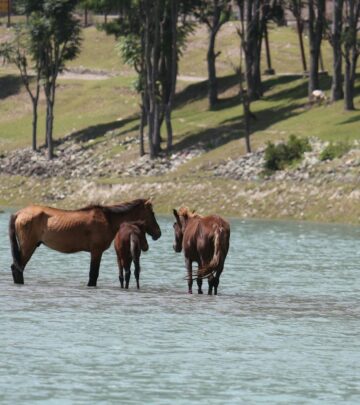
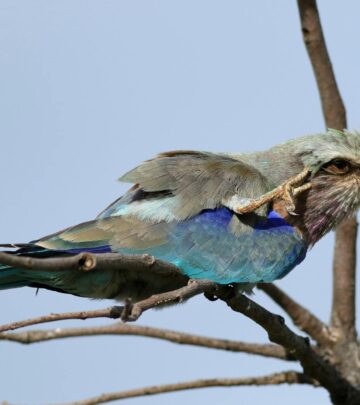
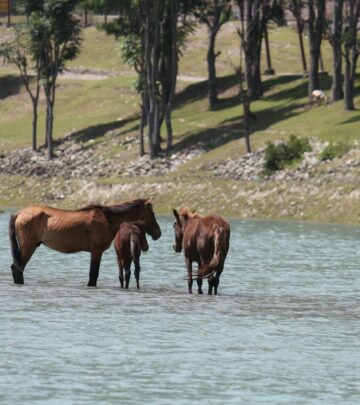




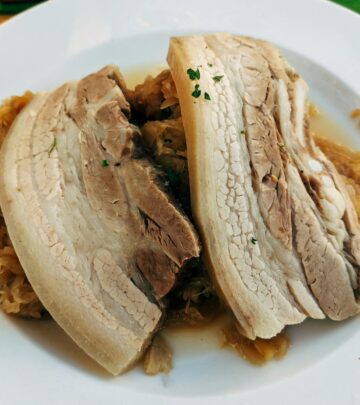



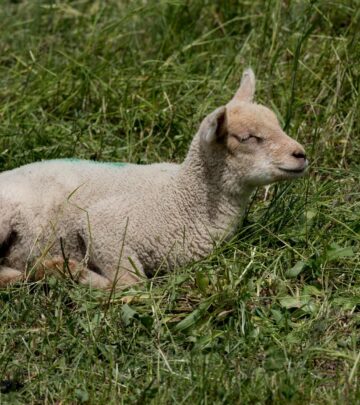

Community Experiences
Join the conversation and become a part of our empowering community! Share your stories, experiences, and insights to connect with other beauty, lifestyle, and health enthusiasts.